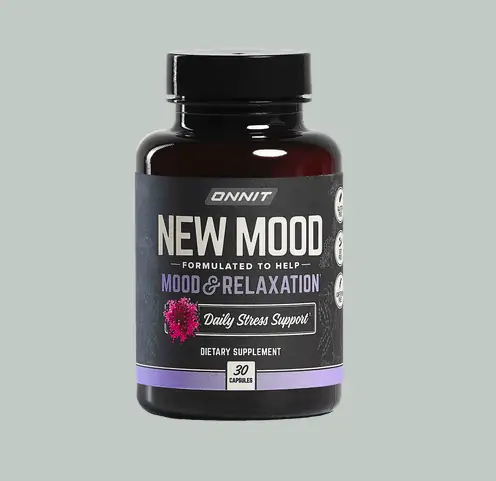
If you’ve ever endured lack of sleep for more than a couple nights, you probably realized pretty quickly that sleep is essential for, well … everything.
Not only will your performance and gains suffer from lack of sleep, but so will your mental health, emotional resilience, and even your immunity and ability to lose weight.
So what do you do if your sleep is spotty, but you feel like you’re doing everything “right”?
Here I’m diving into little-known strategies you can use to get an epic rest, every night.
Let’s hit the sack!
(sorry, had to)
Tips For Getting Better Sleep
The tricky thing about sleep is that it’s affected by so much more than we realize. Often, we can be eating decently, working out regularly, and have a normal amount of stress in our lives … and still have trouble cashing in on quality sleep.
This is because at the end of the day, sleep relies heavily on hormonal balance, as hormones help regulate our circadian rhythms, or sleep cycles.
Below you’ll see tips that are ultra-focused on optimizing these hormones, so you can address the root issue of tossing and turning.
1. Get Enough Sun
All forms of light have a critical effect on our sleep.
Our circadian rhythms, or sleep-wake cycles, are heavily regulated by light exposure. When light enters your eye, a special group of cells on your retina analyzes how much light has entered, then shuttles that information to your brain, which then interprets what time of day it is.
Not getting enough natural daylight can cause your body’s interpretation of the time of day to become disrupted, which can affect hormones that are released at nighttime to help you sleep, namely melatonin.
When you are exposed to only natural light, your circadian rhythm becomes closely synchronized with sunrise and sunset. This results in you feeling tired as it gets darker (the ideal), so that you can fall asleep easily at bedtime.
By getting enough direct sunlight, you (simply put) prime your pineal gland to recognize darkness and start producing melatonin, which helps you fall asleep and stay asleep.
Try getting at least 15 minutes of sunlight during your day, even if it’s only morning or afternoon light.
2. Limit Electronics Before Bed
As mentioned earlier, ALL light has an effect on your circadian rhythm, for better or for worse.
While sunlight during the day can help improve your sleep, synthetic light during the evening can massively disrupt it.
Studies show that the blue light emitted by electronics can disrupt your melatonin production, which can prevent you from falling asleep. Since many of us tend to watch TV or play on our laptops and phones before bed, we can be unconsciously priming ourselves for restless nights.
Try putting away your screens at least an hour before bed. In addition, if you need to use electronics at night, you can also invest in “blue blockers,” which are glasses that help block the blue light spectrum from reaching your eyes.
In addition, make sure your room is as dark as possible when you go to sleep – if you can, invest in curtains that block out all streetlights and outdoor lighting, and turn off lights from electronics in your room.
3. Drink Caffeine Before 3 P.M.
Believe it or not, caffeine can disrupt your sleep for up to 6 hours after drinking it. This means that if you want to start winding down by 9 p.m., you want to limit your afternoon coffee to before 3 p.m.
Keep in mind that certain teas like green tea also contain caffeine, so be mindful of which teas you drink at night.
4. Make Sure You’re Getting Enough Magnesium
It turns out magnesium is important. As in, responsible-for-over-300-enzyme-systems-throughout-your-body important.
And, unfortunately, studies show that up to 75% of the U.S. population does not get the required amount of magnesium per day for optimal health. [*] One reason for this is due to mineral depletion in our soils, combined with not consuming enough magnesium-rich foods.
When it comes to sleep, research has found that magnesium deficiency can significantly disrupt our sleep-wake cycles, and has also been shown to improve insomnia and reduce daytime sleepiness.
Magnesium is also a potent relaxant for your nervous system, and can help reduce anxiety and stress, two other major contributors to sleepless nights.
Focus on eating more magnesium-rich foods such as dark chocolate (at least 75% cacao), dark leafy greens like spinach, nuts and seeds, and grains like quinoa.
5. Stick To A Schedule + Work Out Earlier In The Day
It might seem obvious by now, but I’ll reiterate: your circadian rhythm loves schedules. Specifically, it loves when you wake up and go to bed at roughly the same time every day. This is because your body easily becomes accustomed to the optimal time to release melatonin, as well as the optimal time to release hormones like cortisol, which wake you up. The more regular your sleep schedule, the more regulated your sleep cycles will become.
In addition to waking up and going to bed at (roughly) the same time, try to work out earlier in your day if possible. When we train (and especially during intense sessions), our body releases stress hormones like adrenaline and cortisol. Now, this is natural and a good thing in this scenario, as it helps fuel our performance; however, these hormones also promote alertness and wakefulness, which definitely interferes with sleep.
6. Try Sedative Herbs
Before you reach for pharmaceuticals to finally get some rest, try out a few herbs that have sedative effects.
Chamomile in particular has some awesome research behind it, showing that it significantly helps improve sleep quality through various compounds that relax your nervous system. You can try chamomile tea, or even take it in capsule form like I do below.
Two other choices that have similar effects are lemon balm and valerian root, both of which can be taken as a tea or in capsules.
The great thing about these sedative herbs is that they not only help improve your sleep quality so that you sleep through the night, but they also help you fall asleep and help reduce stress, so you get a sort of one-two punch against sleeplessness.
I personally use Onnit New Mood, which contains a blend of the most powerful herbs and minerals for relaxation, such as valerian root, magnesium, chamomile, lemon balm, and more.
Try Onnit’s New Mood for FREE here >>>
To Recap
• Quality sleep is essential for maintaining energy levels and performance.
• Nutrients and herbs like magnesium and chamomile can help you fall asleep faster and sleep deeper
• Getting enough sun is important for regulating your circadian rhythms, which govern your sleep cycle
• Get rid of all light in your bedroom, as even the smallest amount can interfere with your sleep cycles
• Blue light from electronics can halt your melatonin production, which is essential for falling asleep.
